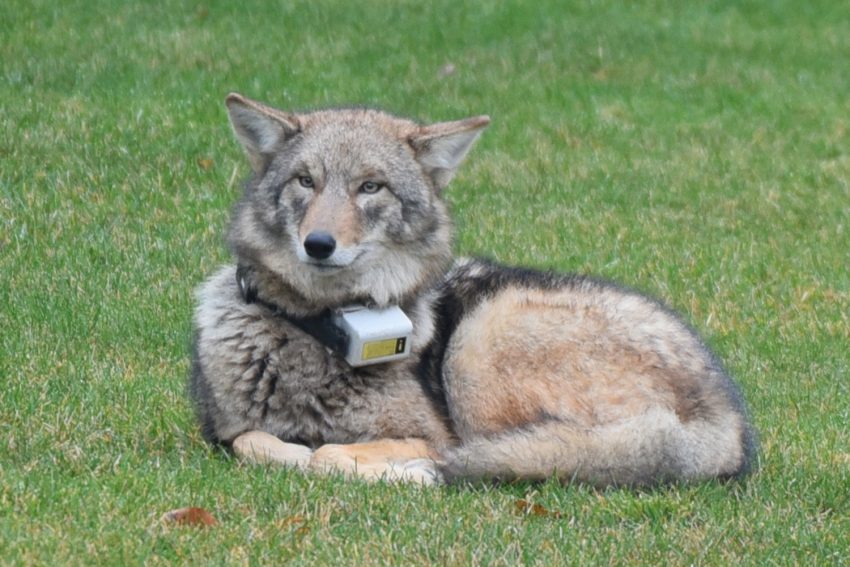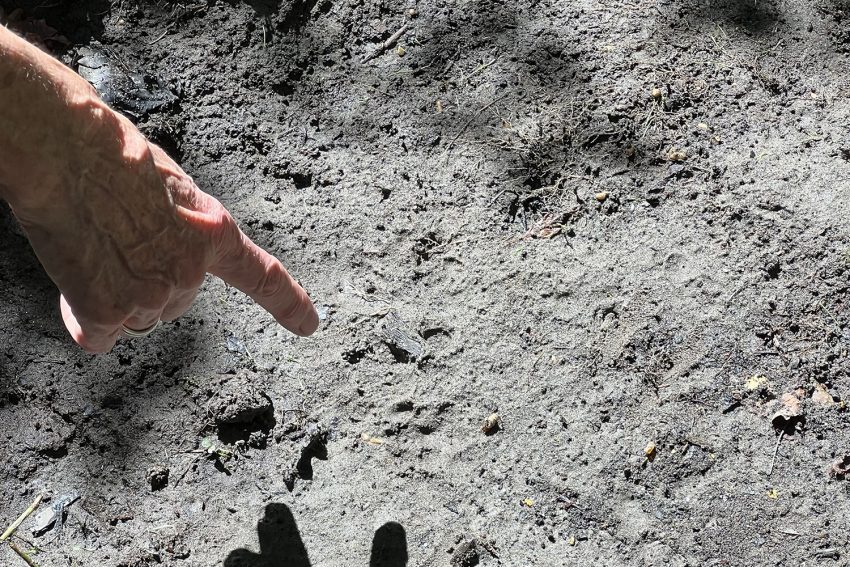Of coyotes and humans Research for a better coexistence of humans and wildlife
Dr Michael Strohbach from the Institute of Geoecology is using the example of coyotes in Rhode Island to study human-wildlife interactions in residential areas. He is currently on site with Matching Fund funding from TU Braunschweig to evaluate research data and expand his contacts.

GPS collars are used to record the locations of coyotes. Photo credit: Dave Hornoff/The Conservation Agency
Coyotes are classic synanthropes and will also use human settlements as a habitat. In the process, conflicts occur time and again, e.g. when domestic animals are attacked or “disappear”. People often feel threatened by the mere presence of coyotes in their living environment. On the other hand, human behaviour is often involved when coyotes get too close to people. Sometimes the animals are fed directly by residents, often food sources are not adequately secured (e.g. rubbish bins or animal carcasses).
For the past 10 years, Dr Michael Strohbach has been collaborating with Dr Numi Mitchel of the Narragansett Bay Coyote Study, the Rhode Island Natural History Survey and the University of Rhode Island. To facilitate data-based suggestions for better coexistence between coyotes and humans, Dr. Mitchell has been researching coyotes in Rhode Island and creating recommendations for communities since 2004. To this end, she has already equipped many animals with GPS collars, which record the animals’ location at regular intervals. Together with Dr. Strohbach from Technische Universität Braunschweig, this data is being analysed to learn more about the animals’ behaviour in the area.
Many of the findings are also relevant for local predators, whether native or introduced (e.g. foxes, raccoons, nutrias). Behaviour, population size and, in the case of territorial animals, territory size are influenced by accidental provision of food or by supposedly well-intentioned feeding. Human behaviour is therefore the key control variable for avoiding human-wildlife conflict.
Dr Strohbach is using his three-week on-site stay for data analysis, discussions on new ideas, drafting articles and to establish further contacts with the Department of Natural Resources Science at the University of Rhode Island.
Text: Michael Strohbach / Heiko Jacobs

